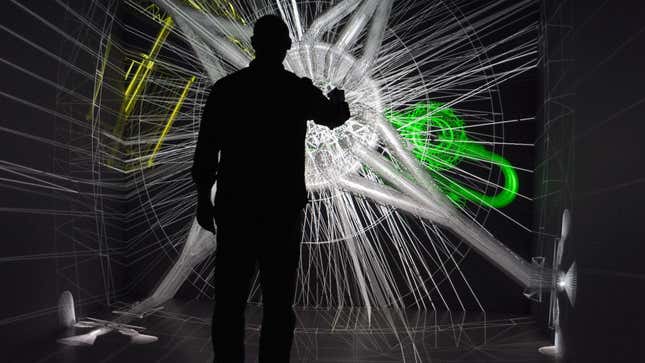
Though still in the early stages, it appears the U.S. appetite for experimental nuclear energy technology is on the rise. Last week, Bill Gates-founded TerraPower announced it had selected Kemmerer, Wyoming, as the site for its first “Natrium” 345 megawatt sodium-cooled fast reactor. Now, the company’s technology will be used to create a first-of-its-kind molten chloride reactor three hours away at the Idaho National Laboratory.
That reactor will be built in collaboration with gas utility giant Southern Company and utilize TerraPower’s molten chloride fast reactor technology. According to TerraPower, this type of reactor differs from others due to its ability to create carbon-free power and generate heat that could make this type of design attractive to heavy industries like steel that require high temperatures and lots of power. The lab itself is a hub for nuclear energy research.
Southern Company claims the reactor will represent the world’s first fast-spectrum, salt-fueled nuclear fission reactor to operate on a self-sustaining nuclear chain reaction. The company described as a “significant inflection point,” for the technology as a whole. Southern Company program manager Lauren Lathem told Bloomberg the company expects the reactor will feature less than 500 kilowatts of capacity, making it decidedly experimental.
The reactor is expected to enter service in 2026 but traces its origins back to 2015, when the two companies received $40 million from the Department of Energy as part of a grant to develop infrastructure to support molten chloride fast reactors. While most nuclear reactors have been focused on generating electricity for the public, this reactor could place a greater emphasis on providing green solutions for industry.
Solving that problem could be a key part of any attempt to meaningfully address climate change since industry as a sector accounts for nearly a quarter of all U.S. greenhouse gas emissions, according to the Environmental Protection Agency. Steel alone is responsible for an estimated 9% of global emissions, and while there are no-carbon steel projects afoot, throwing one more iron into the proverbial fire doesn’t hurt.
TerraPower was co-founded in 2006 by Bill Gates with the aim of one day commercializing experimental new nuclear reactors. TerraPower had previously planned to build its first sodium-fueled reactor in Beijing, but that project fell victim to increased regulatory restrictions during the Trump presidency. Just last week the company announced that the project would operate out of Wyoming instead.
Nuclear energy is being taken seriously by the Biden administration, which has outlined efforts to invest in advanced reactors that it hopes will be smaller and safer than those currently in operation. If passed, the Build Back Better Act would also allocate around $3.2 billion for the Department of Energy’s Advanced Reactor Demonstration Program and $6 billion to preserve existing nuclear reactors that are nearing (or past) their retirement age.